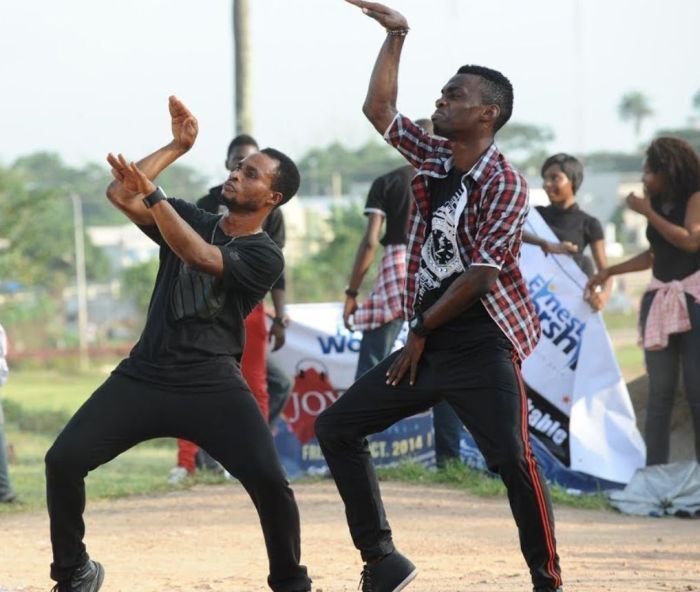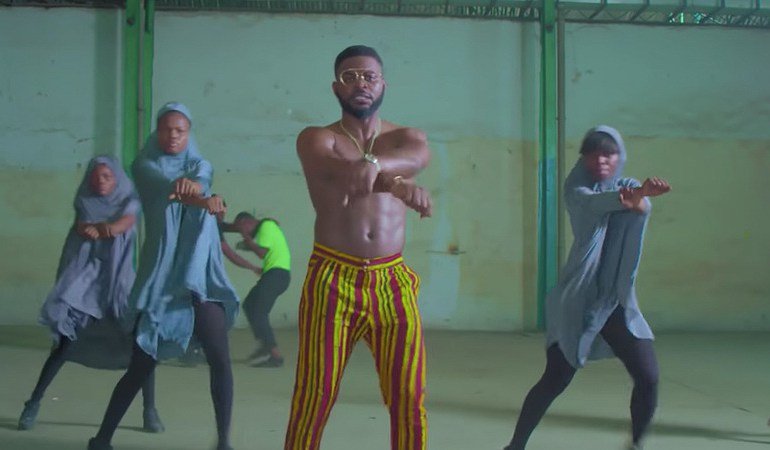We Nigerians, we like to dance. It is somewhat a thing of national pride. We look for excuses to party – funerals, christenings, weddings, you name it. Every ethnic group has a traditional dance or two they’re known for. Our modern society, however, has invented, adopted, and reinvented different dances and it doesn’t look like we’re going to ever stop.
Depending on how old or young you are, some of these dances I’ll discuss might seem strange to you. You might even know some preceding the ones I have mentioned. So, let’s trace Nigerian contemporary dance from the year 2000 till date, shall we?
Makossa
“Makossa” means “dance” in the Congolese tongue of Douala. It is a dance we carried over from the late 1990s into the 21st century. Popularised among Nigerians by Awilo and our very own KoffiOlomide, the dance was hitched on the infectious Congolese sound that got most people around the continent hitched. We danced makossa like it was our own; we made it our own.
Galala
In many ways, Galala is Nigeria’s legitimate first contemporary dance in the new century. It was invented somewhere in the Ghettos of Lagos and made mainstream by Ras Kimono, Blacky, and DaddyShowkey. The dance became as popular as the progenitors and their music.
Suo
Suo is a direct successor of Galala. They both share the same roots and sometimes, were pitched together. Hence the then popular saying: “If you dance Galala, me I go dance Suo”. It was popularised by the duo known as the Danfo Drivers, and MarvellousBenjy, who had a song titled “Suo”.
Yahooze
Olu Maintain is the sole inventor of this dance, as far as we know. We were acquainted with this dance move when he released his hit song of the same title. It must have been was popular enough, for a visiting US Secretary of State, Colin Powell, to have attempted the dance in Abuja.
Alanta
This is one of the most ridiculous dance steps to come out of Nigeria. The sight of a sudden flailing of limbs is a shocking sight to a first timer; but like most things Nigerian, it becomes infectious enough for you to catch on. Terry G became very popular for it. Other stars such as Timaya also did their part.
Etighi
Etighi is an Akwa Ibom traditional dance made popular by Iyanya in the video of his song “Kukere”. The country immediately caught on the dance and it became an instant trend, but not for long. Azonto was around the corner.
Azonto
Azonto is a Ghanaian dance which we claimed here in Nigeria, and made our own. Big artists such as Wizkid and PSquare tweaked and created versions of their own. Soon enough, the music scene became replete with so many versions of Azonto. It is not a difficult dance move which may be why it still comes up every other day.
Skelewu
Davido created and promoted this dance with a single with the same title. It started on social media when he teased a Skelewu dance competition with a monetary prize attached to it. It soon became a mainstream dance but not for a very long time.
Shoki

This drunken dance was a rove in Nigeria for a while. Lil Kesh and Orezi own the credit to this dance step. They each have songs of their own with the same title. It gave birth to a dance sub-genre that includes Shakiti Bobo and Wo, both popularized by Olamide’s songs of the same title.
Shaku-Shaku
Origins are unknown, but it most likely hails from Agege or Ajegunle. The dance became popular in 2016. Arms crossed and legs dribbling, Shaku-Shaku looks easy to emulate but might be more complicated than looks.
Zanku
Zlatan is the known progenitor of this dance step and it came to the fore sometime in 2018 and has remained relevant till date. It still rocks the air.

